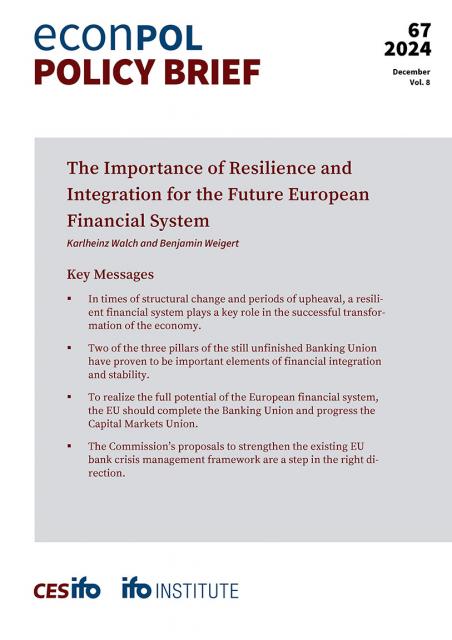The Importance of Resilience and Integration for the Future European Financial System
Key Messages
- In times of structural change and periods of upheaval, a resilient financial system plays a key role in the successful transformation of the economy.
- Two of the three pillars of the still unfinished Banking Union have proven to be important elements of financial integration and stability.
- To realize the full potential of the European financial system, the EU should complete the Banking Union and progress the Capital Markets Union.
- The Commission’s proposals to strengthen the existing EU bank crisis management are a step in the right direction.
Abstract
The idea of a Banking Union emerged in the aftermath of the global financial crisis. Ten years on, two of its three pillars, the Single Supervisory Mechanism and the Single Resolution Mechanism, have proven to be a success with regard to financial integration and stability. In this Policy Brief, experts from the Deutsche Bundesbank explain why, in times of structural change, it is crucial to complete the Banking Union and advance the Capital Markets Union.
Series
Download
Download EconPol Policy Brief 67600.42 KB
Citation
Karlheinz Walch and Benjamin Weigert: “The Importance of Resilience and Integration for the Future European Financial System,” EconPol Policy Brief 67, December 2024.
